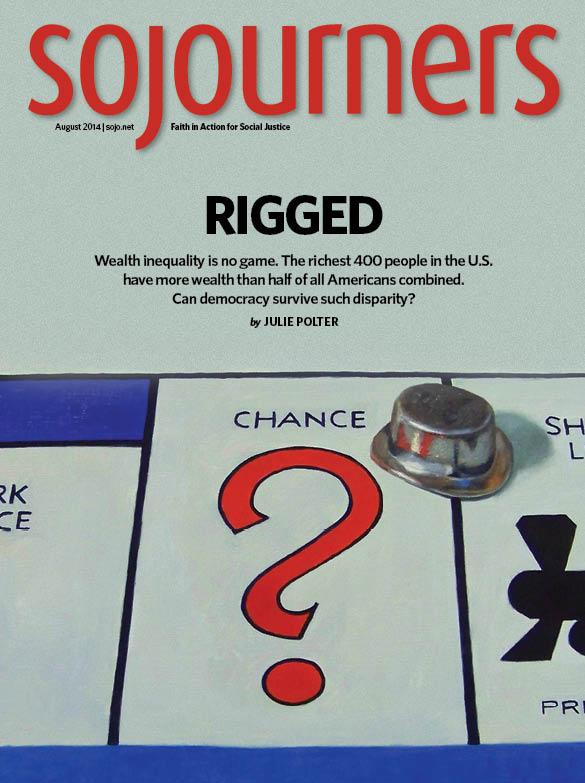
Sojourners Magazine: August 2014
On a church retreat last fall, Doris Bartel told Sojourners editor Jim Rice an intriguing story about bride kidnapping in rural parts of the Eurasian country of Georgia.
Bartel—senior director for gender and empowerment for CARE, which works on gender-based violence and other issues in countries around the world—told Rice about one of her early visits to the tiny village of Natanebi, on the far western edge of Georgia, near the Black Sea. When she first met the teenagers of the village, they were very shy. “In fact,” Bartel said, “they had squished themselves into a corner of the room together like a pile of puppies, giggling and pushing to get to the back and avoiding eye contact with us.” They were the “good kids,” she said, who had agreed to a meeting they didn’t really want. The teenagers who had not come were a few hundred yards away, smoking and acting as cool as James Dean under the tallest tree in the village.
As her group worked with local activists to analyze the culture of influence among the youth of the area, they realized that the “cool boys”—the James Dean types—had a huge influence on how youth, as a group, thought and acted. And as they pondered how to reach that group—and begin to address centuries-old attitudes toward women and girls—they came to see that a surprising answer was found in Georgia’s rich tradition of music, dance, and other performing arts. In this issue, Bartel tells the encouraging story of how community theater and narrative storytelling helped a village talk about age-old traditions in new ways—and begin the difficult process of change.













